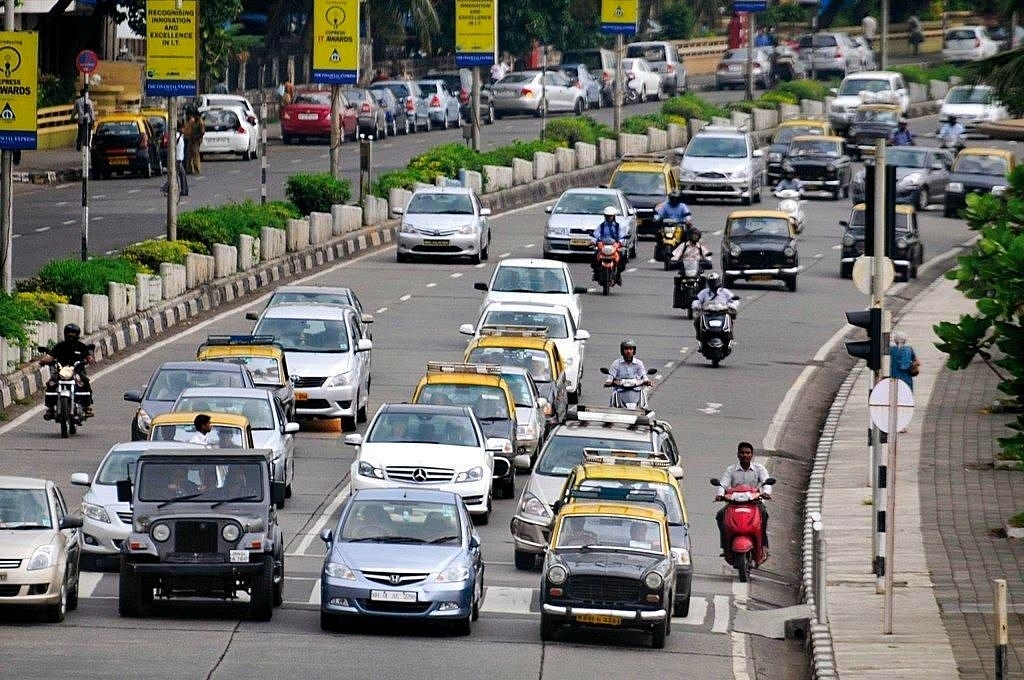News Brief
Centre Issues New Guidelines To Regulate Shared Mobility And Curb Pollution
- The guidelines seek to establish a regulatory framework for aggregators by state governments to ensure that the aggregators are accountable and responsible for the operations executed by them.

Traffic in an Indian city.
Stepping up efforts to regulate shared mobility and reduce traffic congestion and pollution, the government has come up with fresh guidelines making aggregators accountable for operations.
The Ministry of Road Transport and Highways has issued the Motor Vehicle Aggregator Guidelines 2020 as per the requirements and provisions of the Motor Vehicles (Amendment) Act, 2019 and further, as per the amended Section 93 of the Motor Vehicles Act, 1988.
The guidelines provide for a license issued by the state government as a mandatory prerequisite for permitting business operations by the aggregator.
The Ministry said that the guidelines specified by the Central Government for regulating the aggregators may be followed by state governments.
The guidelines seek to establish a regulatory framework for aggregators by state governments to ensure that the aggregators are accountable and responsible for the operations executed by them.
According to the Ministry, this would enable the government to achieve its goal of ensuring maximisation of use of public transport, reduced fuel consumption consequently reducing the import bill, and reduced vehicular pollution.
The Motor Vehicles Act, 1988, has been amended by the Motor Vehicles Amendment Act, 2019 to include the definition of the term 'aggregator'. "Prior to the amendment, the regulation of Aggregator was not available," the ministry said.
The proposed guidelines aim to ensure eligibility conditions or qualifications for an entity to be an aggregator.
The Ministry has exempted electric vehicles and vehicles running on Ethanol or Methanol from the requirements of permit. The state governments will facilitate operations of such vehicles.
The proposed guidelines will ensure regulation of aggregators, eligibility conditions/qualifications for an entity to be an aggregator, compliances with regard to vehicles and drivers, compliances with regard to Aggregator App and Website, manner of fare regulation, evolving concepts like pooling and ride-sharing in private cars and license fees/security deposit and powers that the State governments can wield among others.
In a communication to all the States and Union Territories, the Ministry has stressed upon implementing these guidelines.
The other objectives of these guidelines are to provide ease of doing business, customer safety and driver welfare.
In order to ensure compliance with the license requirements, the Act stipulates penalties under Section 93 of the Act.
The business shall also be considered as a service provided by the aggregators to serve the larger public interest in terms of generation of employment, commutation facilities to the public which is cost effective and comfortable.
Introducing ElectionsHQ + 50 Ground Reports Project
The 2024 elections might seem easy to guess, but there are some important questions that shouldn't be missed.
Do freebies still sway voters? Do people prioritise infrastructure when voting? How will Punjab vote?
The answers to these questions provide great insights into where we, as a country, are headed in the years to come.
Swarajya is starting a project with an aim to do 50 solid ground stories and a smart commentary service on WhatsApp, a one-of-a-kind. We'd love your support during this election season.
Click below to contribute.
Latest